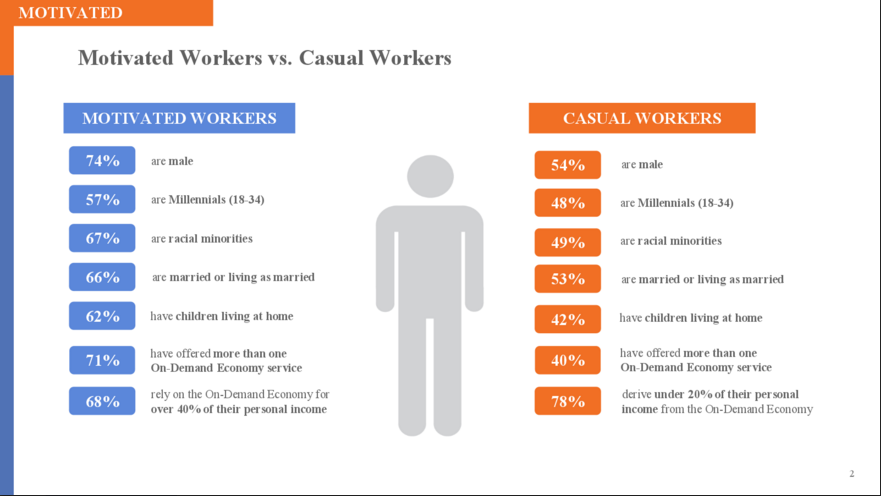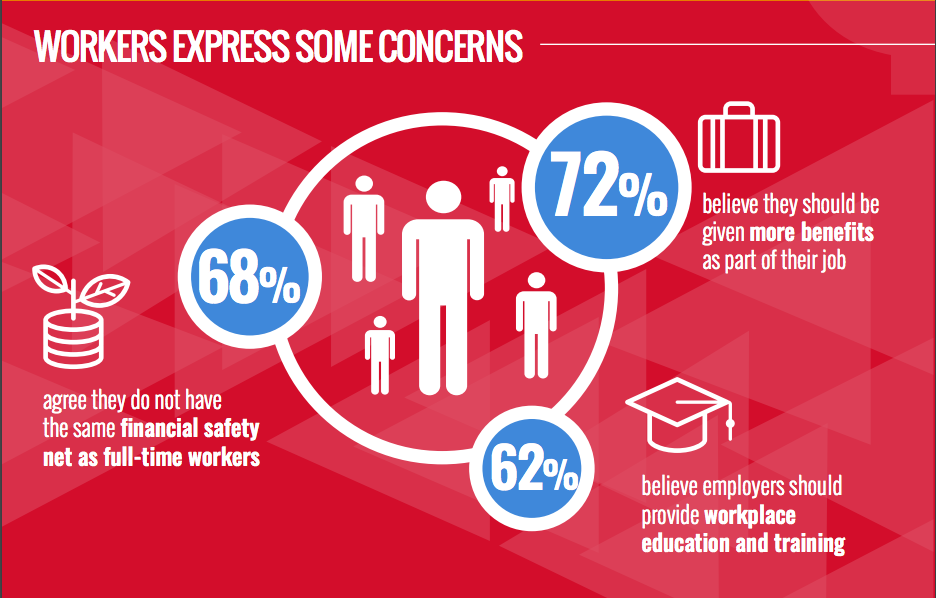
This week, we got a little closer to figuring out exactly what — and exactly who, how many and how much — is going on with the on-demand economy in the United States, thanks to a new survey, this one of both workers and customers.
Market research firm Penn Schoen Berland asked 3,000 people questions about whether they've worked for or benefited from on-demand economy apps such as Uber and Postmates, as part of a survey jointly conducted by Burson Marsteller and The Aspen Institute. Their answers, published by TIME, confirm some of the suspicions held by critics of the on-demand economy.
But it also unearthed new data about a little-discussed (until now) element of the on-demand economy: Of survey respondents who earn more than 40% of their income from on-demand work, a whopping 67% identify as racial minorities. (For context, in 2010 the U.S. Census found that only 36.3% of the U.S. population identifies as a racial minority, which means racial minorities are overrepresented among this sector of gig workers by nearly double.)

That means the majority of people who rely most heavily on these unprotected jobs for income are part of a group of American workers who are already highly disadvantaged when it comes to finding work, and fair pay.
Meanwhile, other survey findings contradict come claims commonly made by on-demand companies. Uber and its ilk often insist that the drivers who work for them need to be classified as independent contractors — a classification that's much cheaper for the employer — because the jobs are flexible, and in fact that drivers value this flexibility so much that they're willing to sacrifice some of the benefits and protections of traditional employment in order to get it.
But this survey found that, while a quarter of respondents do enjoy the flexibility of gig work, and another quarter enjoy the independence, more respondents — 33% — said they do it because they want the supplemental income. 26%, meanwhile, said they do it because they have to — they don't get paid enough doing other jobs. In other words, the primary thing driving respondents to take up on-demand work wasn’t flexibility or independence, but the same reason most people take any job: for the cash.
On top of that, 72% of respondents said they think they deserve more benefits than they're currently getting. And 68% said the financial safety net offered by other types of employment is not available to those who do gig-based work. (However, 71% of those who took the survey said on-demand work had been an overall positive experience.)

People who follow the on-demand economy, and the future of work issue more broadly, are fond of pointing out that the Bureau of Labor Statistics hasn't done a comprehensive survey of contingent work — work that is temporary or non-permanent — since 2005. In the absence of a large-scale survey, polls like this one, despite its limited scope, help shed (some) light on a sector of the economy that, according to the survey, includes some 45 million workers.
